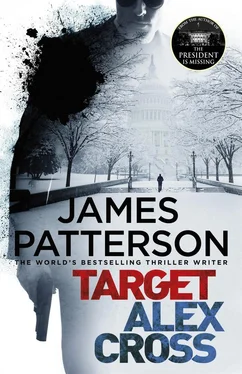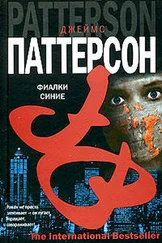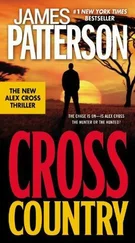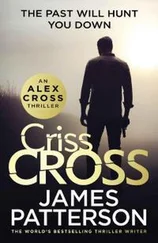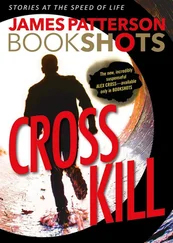In his daze and looking through the slapping windshield wipers and the driving rain, Franks tried to stay in his lane and focus on his options. He could get to the Carey Tunnel from here. But there was a toll, wasn’t there? Brooklyn Bridge, then.
He moaned when he realized he’d just missed another chance to go east. The intensity of the rain made traffic crawl as he drove farther south toward Battery Park and finally got on Water Street, where he turned and headed north.
When traffic came to a stop, Franks checked the wound again. The bleeding was slowing, and he didn’t feel like his lung had been damaged. The drugs kicked in like a warm fountain, going up his spine and into his head. He swooned.
A car honked. Franks came around, feeling better, sweeter. Traffic rolled forward half a block and stalled again. Then, on the radio, he heard the attorney general, now acting president, Larkin describe the scope of the conspiracy.
Five of them, Franks thought in awe. Coordinated attacks on the top five. Who does that?
Traffic started to move before he could consider his own involvement. He was a traitor, wasn’t he?
“Yes, that’s what I am,” he said, and he laughed bitterly and ate two more painkillers. “Just like dear old dad.”
Two minutes later, he heard Larkin institute martial law. The drugs became a wave, then, that washed over the assassin, and he barely kept the SUV in the lane.
The rain came in sheets. The windshield wipers swept wildly back and forth. He tried to use that visualization method that had served him so well in Afghanistan, tried to see what he was about to do, and he asked the universe to signal him if he was in danger.
Franks felt hypnotized and numb when he finally took a left on Beekman Street and crawled toward the right turn on Park Row and the entrance to the Brooklyn Bridge.
Traffic slowed to a halt again.
On the radio, some army general was ordering people to get off the streets.
Where do they expect people to go? Franks thought, and he laughed at the absurdity of it.
Looking ahead through the rain and the wipers, he saw cruisers with lights flashing at the bridge entrance. He thought he saw dark figures walking between the cars, coming at him. And then he didn’t need a sign from above. He was positive that the police, five of them, guns drawn, were knocking on car windows and speaking to drivers and passengers alike.
Franks started to whistle “Carry On Wayward Son” and then pushed the button that popped the rear hatch. He yanked the car into park left-handed and grabbed his pistol. He forced himself over the front seat and then over the backseat, then rolled out into the pelting rain.
A young woman was driving the Land Rover behind him. She was peering at Franks through the windshield. He ignored her and took two steps, figuring out the route he would take, when the woman started honking her horn.
Franks considered shooting her but instead lowered his head to the rain and hurried diagonally away from the police across Park Row. He made the sidewalk by City Hall Park, and kept moving away from the bridge. The woman kept honking her horn.
He never looked back and thought he’d make the corner onto Vesey Street.
Twelve steps from being out of sight, he heard a woman shout, “Stop where you are. Show me your hands!”
For some reason, Franks thought of the logger, then he stuffed the barrel of his gun under his right armpit, lifted the Treasury agent badge up with his left hand, and turned to find a young female uniformed cop about thirty feet away.
She was shakily aiming her service pistol at him, and he could see doubt and fear all about her.
“Federal agent!” Franks cried, showing her the badge and ID. “Don’t shoot!”
“Down on the ground!” she shouted.
“You’re making a mistake, rookie,” he warned her as he started to lower himself down. “I was chasing the killer. He’s getting—”
A squall of rain hit them. He dropped to his knees, went for the gun, snagged it expertly, and whipped it out, intending to shoot the young cop.
She shot first and hit Franks square in the chest. He staggered back in disbelief but still tried to aim at her. She shot him twice more.
He fell on his back, dying.
Franks’s last vision was of the cop standing over him, aiming at him.
“No rookie mistake, man,” she said, her voice taunting and quivering both. “No rookie mistake at all.”
Roughly two hours after President Hobbs was shot, Mahoney and I lifted off the roof of FBI headquarters in a helicopter bound for Joint Base Andrews, which used to be known as Andrews Air Force Base.
Looking down on the nation’s capital, I saw tanks flanking the bridges and armed soldiers amassing on every corner. There were cops and FBI agents searching every vehicle trying to leave Washington. In all my years in DC, I had never seen this level of military presence, not even after 9/11.
The media was painting the mood of the country as bordering on panic. There were reports of runs on grocery stores and on guns and ammunition. People were frightened and desperate to know what was happening.
“We’ll catch him,” Mahoney said, breaking into my thoughts. “With or without professional footage of the actual shooting.”
“Krazy Kat said he thought he could do something,” I said.
Ned cringed. “Did we have to bring him in?”
“Rawlins is the best there is,” I said. “I figure he’s our only chance of getting a look at the killer anytime soon.”
Mahoney grunted and looked at his phone screen. We flew within sight of my home, and I looked toward it, wondering when I’d return. For a moment, I shut my eyes and prayed it would happen sooner rather than later.
We landed on a helipad at Andrews, not far from Marine One, the president’s helicopter. Air Force One was there, but it looked different to me. There were three other planes just like it, all unmarked, all Boeing E-4s, sitting on the tarmac along with ten fighter jets and half a dozen private jets.
Armed airmen inspected our FBI identifications. Everywhere we looked, we saw battle-ready soldiers and airmen.
For the first time, it felt to me like we really could be a nation at war.
My generation of Americans had never experienced political assassination. And nothing of this magnitude had ever happened in U.S. history.
That shook me. It really did. I understood why people might feel on the verge of panic. No one knew who or what was behind the attacks or what might be coming next. That dread and uncertainty were enough to push people right to the edge psychologically, and I expected to hear about looting and civil unrest before too long.
A soldier led us into an open hangar, and we entered a space big enough to hold a C-130 cargo jet or two. As we crossed the hangar floor, I looked down at my casual clothes and felt underdressed to meet the president, even given the circumstances. Nana Mama would have been appalled.
The soldier stopped and stood aside, and I followed Mahoney into a large room with six long rectangular tables.
Around the tables sat perhaps twenty people, several of whom I knew at a glance. Samuel Larkin, the acting president, was huddled at the far end of one table with FBI director Sanford, General Hayes, and Homeland Security director Elaine Monroe as well as CIA director Felix White.
I recognized the upset faces of enough other people at the table to realize they were the surviving members of the cabinet. John Watts, the chief justice of the U.S. Supreme Court, was there as well. So were the leaders of both parties in both houses of Congress.
“What in God’s name am I doing in this room?” I whispered to Mahoney.
Читать дальше
